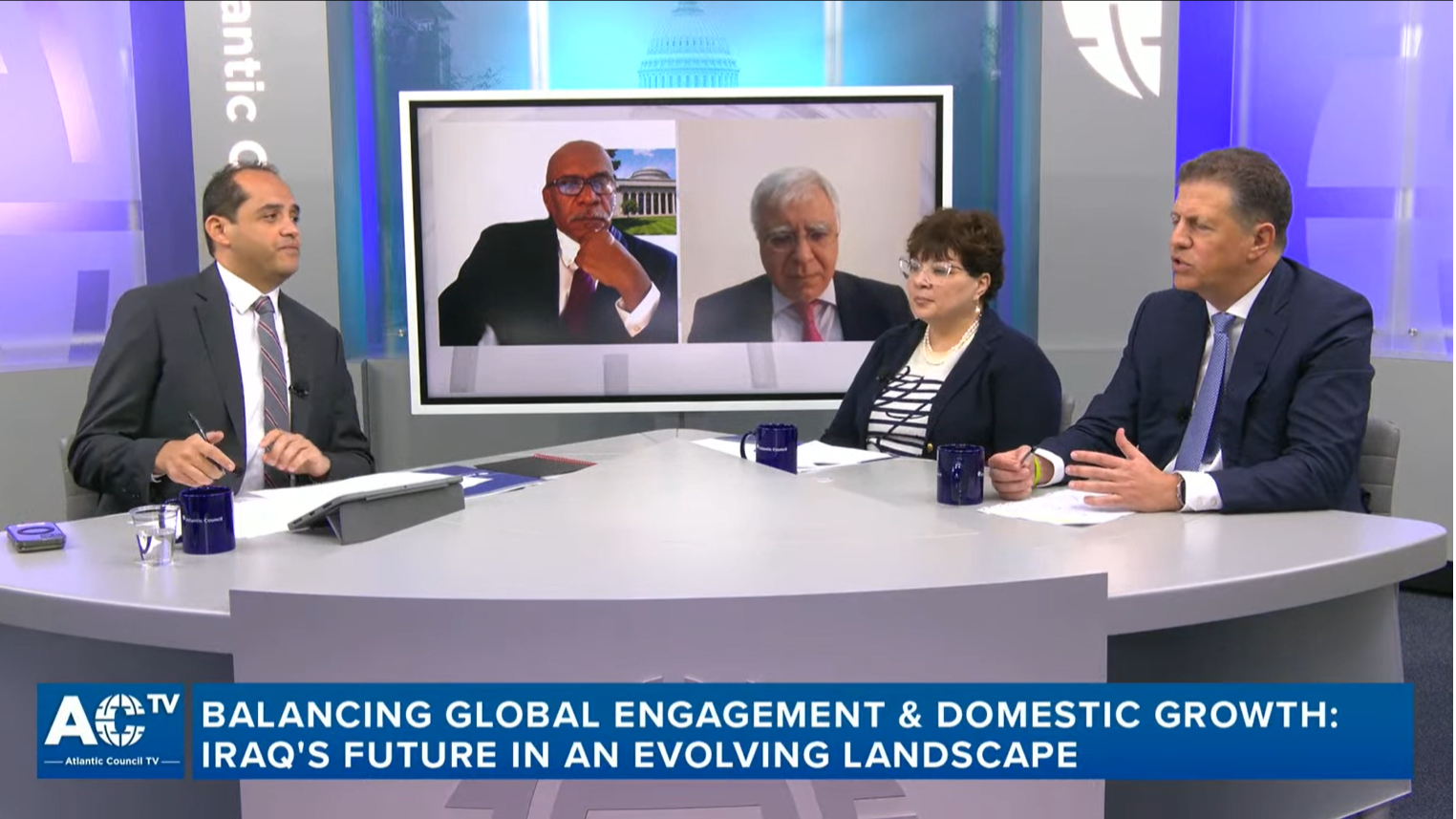
• For inquiries, please contact AFED Secretariat:
Tel.:
+961-1-321800
Fax: +961-1-321900
E-mail: info@afedonline.org
Washington, 26/10/2023
Majid Jafar, member of AFED’s Board of Trustees and Executive
Committee, was panelist at a conference on rebuilding of Iraq, organised by the
Atlantic Council in Washington. The conference, which gathered Arab and
international experts, discussed balancing global engagement and domestic
growth affecting the future of Iraq in an evolving landscape. At a session
dedicated to climate and environment challenges in Iraq, Jafar presented an
overview of the foremost problems and suggested recommendations, based on the
findings of various AFED reports. As CEO of Crescent Petroleum, a UAE-based
company with major projects in Iraq, mainly in the natural gas sector, he
discussed in detail the role of energy companies in securing a smooth
transition to clean energy. He explained that cutting methane emissions from
fossil fuels industry was a major challenge in Iraq, where flaring is an immediate
source of greenhouse gases.
Jafar sketched main environmental challenges in Iraq at
present in three categories:
Drought and Water: In line with
AFED’s conclusion that drought is the most immediate threat in the region, Iraq
is suffering from its worst water shortage crisis in 80 years, and with an
ongoing four-year drought aggravated by climate change the outlook is even worse.
The water crisis plummeted to a low point in summer 2023 with the almost
complete drying up of the marshlands – historically the largest wetland
ecosystem in the Middle East. Euphrates River water levels in the marshlands
(at Chibayish) in October 2023 have dropped to 0.5 meters where average levels
in past years have been in the range of 1.6-1.7 meters. The drought’s
implications on people’s livelihoods accentuating desertification and ecosystem
degradation and biodiversity loss cannot be overstated.
Water scarcity and drought are among major drivers of climate-related
human mobility, which is already a reality in
Iraq, especially in the south of the country which has experienced large
movements of human flows over the last decade. As of June 2023, International Organization for Migration (IOM) recorded more than 83,000 individuals as displaced
due to water scarcity, high salinity, and poor water quality across Iraq. While
a 2021 study by the Norwegian Refugee Council (NRC), found that in
drought-affected areas, one in 15 households had a family member forced to
migrate in search of work.
Pollution: Water, land and air pollution is a
chronic challenge. Completely inadequate wastewater treatment – 5 million cubic
meters of sewage is discharged per day – has effectively turned the Tigris and
Euphrates rivers into “open sewers”. The lack of sanitary landfills (with sole
exception of one facility in Kirkuk) is contaminating land and groundwater.
Plastic waste is a major problem, and is clogging up the country’s extensive
network of canals. Air pollution (PM, NOx, SOx) creates persistent smog across
Iraq’s skies with serious long-term health impacts. The frequency and severity
of sand and dust storms has been consistently intensifying. Pollution from the
oil industry is a major problem with serious impacts on local communities and
biodiversity. Iraq is consistently ranked amongst the top 2 global methane
emitters – a potent greenhouse gas, due to extensive flaring and leaks. The
situation, however, has been improving over the past 2 years with growing investments
to capture the methane.
Conflict: Iraq’s difficult modern history with almost 50 years of continuous
conflict has had a major environmental legacy. Targeting and torching of oil
fields, mines and industrial facilities has created serious but localized
pollution. The generation of over 55 million tons of debris from the ISIL
conflict which destroyed over 60 towns and 1,500 village remains a major
obstacle for the return of displaced persons.
PHOTO: Majid Jafar, right, talking alongside Dr. Mishkat Al-Moumin,
Former Iraqi Minister of Environment and CEO of Envirolution, at a session
moderated by Ahmed Al Qabany, Senior Climate Change Specialist at the
World Bank